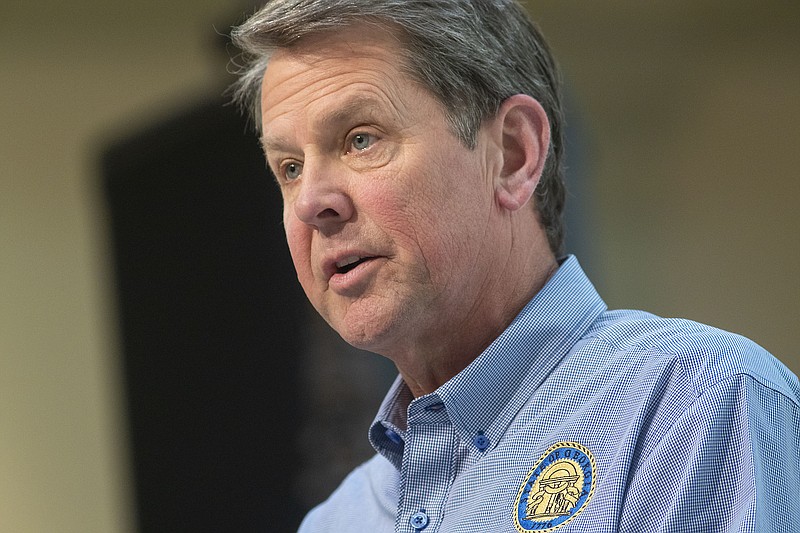ATLANTA -- Gov. Brian Kemp used his emergency powers to extend an executive order that limits legal liability for Georgia's hospitals and medical workers during the coronavirus pandemic, while also including a provision that specifically excludes abortion providers from the protections.
The order signed Tuesday renews authority first granted in April that designates hospitals and front-line medical staffers as "auxiliary emergency management workers" and provides them additional legal protection from personal injury lawsuits during the pandemic.
For the first time, however, the Republican also specifically exempts from protection the medical employees who perform abortions. His office said in a statement the decision will not affect facilities that doctors use to perform abortions.
"It should come as no surprise that elective abortions are not emergency management activities," Kemp spokeswoman Candice Broce said. "Abortion providers are undeserving of enhanced liability protections because they are doing nothing to fight COVID-19 in Georgia."
Kemp ran for governor on a promise to limit abortions, and last year he signed into law one of the nation's strictest anti-abortion measures. It seeks to outlaw most abortions once a doctor can detect a fetus's "heartbeat" -- usually about six weeks into a pregnancy -- and was soon challenged in court.
It was a more nuanced step than those taken by other Republican-led states to limit abortions during the pandemic. Texas officials said abortions should be delayed to preserve lifesaving protective gear before abandoning the fight amid a legal dispute that went to the U.S. Supreme Court.
And abortion rights groups sued to stop a group of states that included Alabama, Arkansas, Louisiana, Ohio, Oklahoma and Tennessee that sought to delay abortions by including the procedure in lists of nonessential procedures.
In Georgia, supporters of abortion rights have closely watched Kemp's emergency orders for signs of restrictions. Staci Fox, the chief executive of Atlanta-based Planned Parenthood Southeast Advocates, said the organization's attorneys are reviewing Kemp's decision.
"Abortion is essential and it remains legal in the state of Georgia," Fox said. "The governor's order regarding legal immunity does not impact a patient's ability to access abortion."
Anti-abortion groups praised the governor's stance. Cole Muzio of the Family Policy Alliance of Georgia said doctors and first responders are the "heroes who deserve legal protection" and not abortion providers.
"We will protect the innocent and defend those who use medicine to save and to heal," said Muzio, who added that the same legal protections should not extend to those "who willfully ignore science and decency in order to promote a barbaric ideology."
But Kemp is also facing pressure from some anti-abortion activists to take a more aggressive approach and halt all abortions. The Georgia Right to Life group launched an online petition pressing Kemp to shutter abortion facilities during the pandemic.
When he issued his original order in April, Kemp's decision to limit the legal liability of some medical providers was hailed by hospital executives as much-needed help for a strained health care system, though watchdog groups and legal advocates worried that he went too far.
The governor's order doesn't protect staff or facilities from liability in the case of intentional harm or "gross negligence," a legal standard that can trigger punitive damage awards in liability cases. It also limits liability for issues beyond COVID-19, the disease caused by the coronavirus.
Kemp's initial order, signed April 14, didn't include abortion providers in a broader grouping of hospitals, surgical and diagnostic centers, mobile clinics, rehab facilities, nursing homes and assisted living communities that were granted legal protections.
His follow-up order Tuesday specifically excluded them, saying "in no case shall workers providing or performing services in or in conjunction with health care facilities" that carry out abortions be granted the protections under his order.
